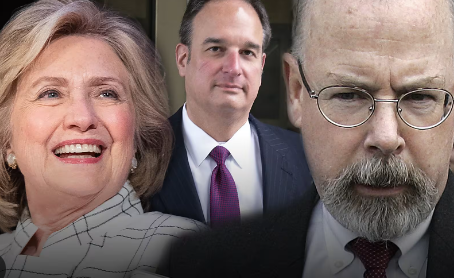In a fiery clash during the September 10, 2024, presidential debate, Kamala Harris accused Donald Trump of “selling out” the United States with his controversial China trade policies. The showdown, hosted by ABC News at the National Constitution Center in Philadelphia, centered around Trump’s proposed blanket tariffs on imports and his escalating trade war with China.
Harris Takes Aim at Trump’s Tariff Plan
Kamala Harris, the Democratic candidate and current Vice President, launched her attack by labeling Trump’s proposed 20% tariffs on all imports as a “Trump sales tax” that would hit American families hard. She argued that these tariffs would increase the cost of everyday goods, making it difficult for middle-class households to keep up with rising prices.
“My opponent has a plan that I call the ‘Trump sales tax,’ which would be a 20% tax on everyday goods that you rely on to get through the month,” Harris said. “This policy would put an unnecessary burden on working families.”
Trump Defends Aggressive Trade Policies
Former President Donald Trump, the Republican contender, defended his bold tariff proposals, which include additional duties of 60% to 100% on Chinese imports. Trump argued that these tariffs are necessary to correct decades of economic imbalance and force foreign nations to “pay back” the U.S.
“Other countries are going to finally, after 75 years, pay us back for all that we’ve done for the world,” Trump asserted. “The tariff will be substantial.”
While Trump boasted that his tariffs brought in “billions of dollars” during his first term, economists have consistently warned that U.S. consumers and businesses ultimately shoulder the cost of such trade duties. Studies from Trump’s 2018 and 2019 tariff policies showed that prices soared for U.S. companies and end consumers.
Harris Calls for a Future-Focused Approach
In stark contrast, Harris highlighted Trump’s failure to maintain a competitive edge in critical sectors like technology, AI, and quantum computing. She accused Trump of overseeing one of the largest trade deficits in U.S. history and said his administration was responsible for “inviting trade wars” that hurt the American economy.
“Under Donald Trump’s presidency, he sold American chips to China to help them modernize their military,” Harris charged. “He sold us out when our focus should be on winning the race in technology and investing in American-based innovations.”
Harris laid out her vision for America’s future, stressing the importance of building strong alliances and investing in key technologies. “To win the 21st-century competition, we need to focus on strengthening relationships with our allies, supporting American workers, and investing in AI, quantum computing, and other emerging industries,” Harris said
 .
.
A Battle of Economic Strategies
As the debate continued, Trump attacked Harris for maintaining many of his administration’s tariffs, pointing out that the Biden-Harris administration raised tariffs on $18 billion of Chinese goods in May 2024, including semiconductors and electric vehicles.
“They never took the tariff off because it was so much money,” Trump remarked. “They can’t, because it would totally destroy everything they’ve set out to do.”
Harris, however, countered that Trump’s policies left the U.S. weakened on the global stage. She called for a more targeted approach, working with allies to curb China’s access to advanced technologies and safeguard America’s position as a leader in innovation.
Key Terms:
- Trump’s trade tariffs
- Kamala Harris China policy
- U.S.-China trade war 2024
- Presidential debate on tariffs
- 2024 presidential election.In a heated exchange during the September 10, 2024, presidential debate, Kamala Harris accused Donald Trump of “selling out” the United States with his controversial trade policies towards China. Hosted by ABC News at the National Constitution Center in Philadelphia, the debate spotlighted sharp contrasts between the candidates’ economic strategies.
Harris Takes Aim at Trump’s Tariff Plan
- Kamala Harris, the Democratic candidate and Vice President, criticized Trump’s proposed tariffs, including a blanket 20% duty on all imports. She branded it the “Trump sales tax,” warning that it would significantly increase the cost of everyday goods for American families. Harris highlighted how such a tax would disproportionately impact middle-class households.
“My opponent has a plan that I call the ‘Trump sales tax,’ which would be a 20% tax on everyday goods that you rely on to get through the month,” Harris stated. “This policy would place an undue burden on working families and hurt the very people who are already struggling.”
- Trump Defends Aggressive Trade Policies
Former President Donald Trump defended his proposed tariffs, which include additional duties ranging from 60% to 100% on Chinese imports. Trump argued that these measures are crucial for addressing long-standing trade imbalances and forcing foreign nations, particularly China, to contribute more equitably.
“Other countries are going to finally, after 75 years, pay us back for all that we’ve done for the world,” Trump said. “The tariff will be substantial, and it will correct the trade deficits we’ve faced for decades.”
Trump’s administration implemented similar tariffs in 2018 and 2019, targeting the European Union and China. These tariffs, while generating significant revenue, also led to increased costs for U.S. businesses and consumers. Economic analyses have shown that tariffs on Chinese goods led to higher prices for American consumers and reduced competitiveness for U.S. companies.
- Historical Context and Economic Impact
The U.S.-China trade relationship has been fraught with tension for years. Trump’s initial tariffs were part of a broader trade war that sought to address alleged unfair trade practices by China. While Trump claimed success in renegotiating trade terms, critics argue that the resulting tariffs ultimately harmed American consumers and businesses more than they benefited.
Harris’s critique focuses on the long-term strategic implications of Trump’s policies. She argued that Trump’s approach failed to address the broader technological and economic competition between the U.S. and China.
- Harris Advocates for a Future-Focused Approach
Harris proposed a shift towards a more strategic and technology-oriented policy. She emphasized the need for the U.S. to lead in emerging technologies like AI and quantum computing, asserting that Trump’s trade policies undermined America’s competitive edge in these critical areas.
“Under Donald Trump’s presidency, he sold American chips to China to help them modernize their military,” Harris said. “He sold us out when our focus should be on ensuring America leads in technology and innovation.”
Harris’s plan includes strengthening alliances with global partners and investing in domestic technologies to maintain the U.S.’s leadership position in the 21st-century economy.
- Trump’s Response and Tariff Continuity
Trump countered Harris’s claims by pointing out that the Biden-Harris administration had not reversed many of his tariffs, even increasing duties on $18 billion worth of Chinese goods in May 2024. He argued that the continuation of these tariffs indicates their effectiveness and necessity.
“They never took the tariff off because it was so lucrative for them,” Trump remarked. “They can’t backtrack now without jeopardizing their entire economic agenda.”
- Expert Opinions and Future Implications
Economic experts generally agree that while tariffs can generate short-term revenue, they often lead to higher consumer prices and strained trade relationships. Steve Kamin, senior fellow at the American Enterprise Institute, reiterated these concerns, describing Trump’s proposed additional tariffs as “both inflationary and contractionary.”
In contrast, Harris’s approach is seen as more aligned with modern economic strategies, focusing on technological advancement and international cooperation rather than unilateral trade measures.
Key Terms:
- Trump’s trade tariffs
- Kamala Harris China policy
- U.S.-China trade war 2024
- Presidential debate on tariffs
- 2024 presidential el
The 2024 presidential debate revealed a deep divide in U.S. economic strategy. Trump doubled down on his aggressive trade tariffs, promising to make foreign countries “pay up,” while Harris advocated for a forward-thinking policy focused on technology and alliances. As the election nears, American voters will decide which path is best for the future of the nation’s economy and its place on the global stage.





